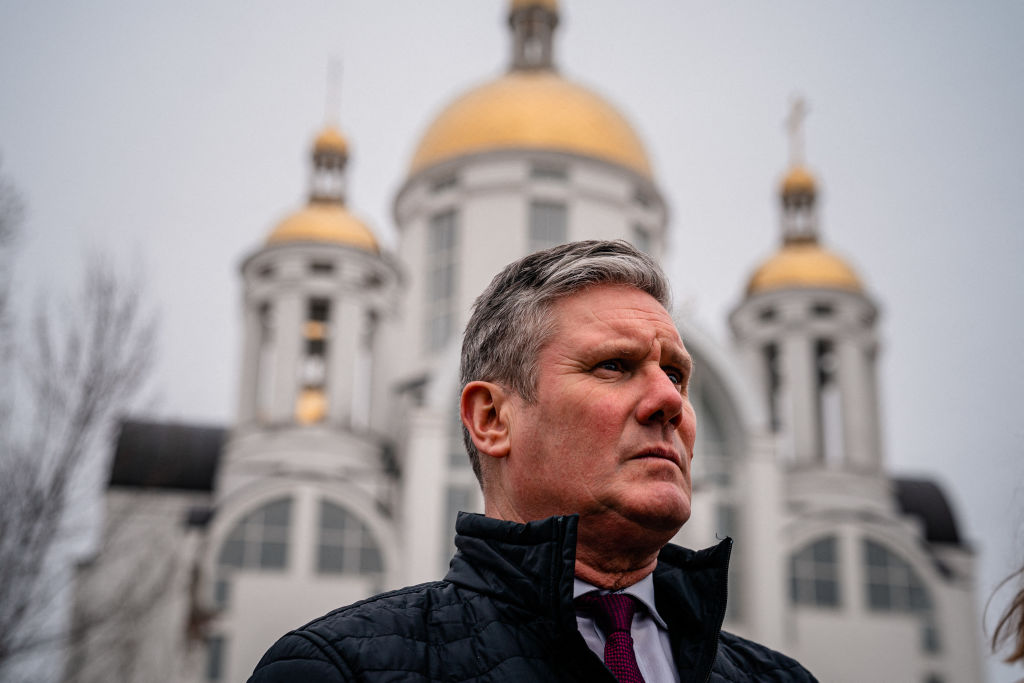When journalists scan the next Register of Members’ Interests to discover which ministers have accepted “freebie” trips abroad, they are unlikely to see a sojourn to Siberia on the list. Yesterday, the Kremlin released a list of 16 British Cabinet ministers forbidden from entering Russia as “punishment” for their “reckless policies” and “anti-Russia activities”.
Given the unlikelihood of Deputy Prime Minister Angela Rayner embarking upon a mini-break in Moscow, this measure is clearly yet another attempt by Russia to find the most visible methods of targeting Britain. Think back to last month’s chaotic scenes when a mob, apparently organised by the Russian security services, harassed senior British diplomats at a Moscow airport, or yesterday’s summoning of the British Ambassador over alleged spying by one of his diplomats, with the Kremlin even naming the suspect.
Lest these appear rarefied diplomatic disputes between the British Embassy in Moscow and its host nation, Cabinet Office Minister Pat McFadden this week warned of the threat the Kremlin poses to the UK as a whole through cyber attacks shutting down power grids, all in a bid to weaken British support for Ukraine.
So why is the UK such a target for Moscow? Some of the motivation behind the latest moves will undeniably be the necessity of presenting a robust public response to Ukraine’s use of Franco-British Storm Shadow missiles against military targets in Russia. Yet there are also longer-term reasons for Russian discontent. The UK has long served as an adopted homeland for those who have fallen out of favour with the Kremlin, including ex-spy Oleg Gordievsky, businessman Boris Berezovsky and oligarch-turned-oppositionist Mikhail Khodorkovsky.
That is before one turns to the UK’s leading role in aiding Ukraine, supplying Kyiv with NLAW anti-tank missiles and calling Moscow out for its invasion plot before the war began. As Ukrainian President Volodymyr Zelensky remarked last year, the UK extended its “helping hand when the world had not yet come to understand how to react”. The UK provision of weaponry, training and intelligence to Ukraine is likely viewed bitterly in the Kremlin not just as interference in its backyard and an obstacle to victory, but also as bearing indirect responsibility for the tens of thousands of young Russian lives claimed in this war.
As for why Moscow adopts such overtly harsh methods, the answer perhaps lies in the UK’s immunity to softer means. While Russia can strive to weaken support for Ukraine in other European capitals by funding and promoting pro-Moscow parties, there are no mainstream British political parties in favour of Russia or which advocate cutting aid to Ukraine. The closest British political life has is Reform UK leader Nigel Farage’s occasional interventions on the topic, and even those provoke considerable controversy. Given the public and political consensus around supporting Kyiv, Moscow’s only hope of reducing support can be broad, brute-force techniques aimed at making the British electorate question whether assisting Ukraine is worth the cost.
Besides, there is little to lose in bullying the UK, which lacks the military heft of America and the solidarity enjoyed by EU member states. It further suits Russia’s geopolitical aims: in trying to strengthen its ties with the Global South to overcome sanctions and diplomatic isolation, Moscow has — with apparently no regard for irony — positioned itself as an anti-imperialist power. In this context, the Kremlin’s repeated references to the “British Empire” and public humiliation of UK diplomats help it appeal to both nationalistic elements at home and postcolonial audiences overseas.
It should therefore come as no surprise that the UK has made itself a target of Russia. In that light, the British Government must consider if it wants to bear the consequences of being an outlier on the continent, attracting the Kremlin’s wrath but lacking the military resources to intimidate it. Expect greater humiliation to come.











Join the discussion
Join like minded readers that support our journalism by becoming a paid subscriber
To join the discussion in the comments, become a paid subscriber.
Join like minded readers that support our journalism, read unlimited articles and enjoy other subscriber-only benefits.
Subscribe